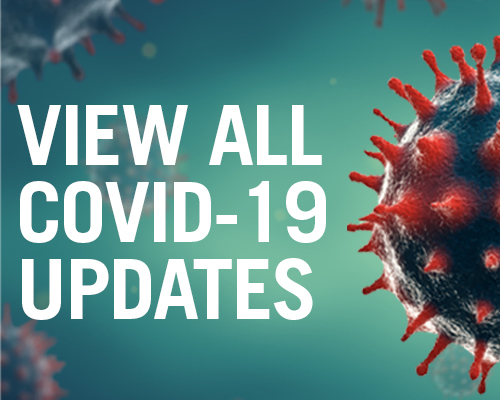ACE Inhibitors/ARBs Safe, Possibly Protective in Hypertensive COVID-19 Patients
Two retrospective studies from China found no link to higher mortality, with one even suggesting lower death risk.

New data gathered from China’s Hubei Province, home to the city of Wuhan, provide additional reassurance that renin-angiotensin-aldosterone system (RAAS) inhibitors don’t appear to increase mortality among patients with hypertension hospitalized due to COVID-19, researchers report in two retrospective analyses.
One, a single-center study published yesterday in JAMA Cardiology, showed no differences in disease severity or death based on whether patients were or weren’t taking ACE inhibitors or ARBs. The other, a multicenter study released early online last week by Circulation Research, takes this positive news one step further—in propensity matched, adjusted analyses, use of RAAS inhibitors was linked to a 63% lower risk of mortality compared with no use, though investigators urged caution in interpreting this striking result.

Franz Messerli, MD (University of Bern, Switzerland), told TCTMD that these latest studies are consistent with a growing body of literature that precedes the COVID-19 era. “When you just look at viral pneumonia in general, before COVID, then the ACE inhibitors and ARBs had a positive effect” on pulmonary outcomes, he said. In the new numbers suggesting a survival benefit, “we see an even more profound effect . . . , which is very positive,” he said.
What these studies don’t address is how RAAS inhibitors affect hypertensive patients who do not yet have COVID-19, Messerli emphasized. “That we don’t know. It could still be, and this is a hypothesis that has been put forward, that ACE2 upregulation increases infectivity, so that patients on ACE inhibitors/ARBs have a higher risk of [SARS-CoV2 infection] than patients not on these drugs.”
It’s therefore important to “clearly distinguish infectivity and outcome,” he said. “Outcome, no question now with the Circulation Research study, seems to be improved when you are on an ACE inhibitor or ARB. Infectivity is up in the air for the time being.”
Messerli, lead author of a review article summarizing current evidence on COVID-19 and RAAS inhibition, has been working on a meta-analysis on the same topic. When it comes to already infected patients, he said, “overall, it either looks neutral or positive.”
Various professional societies around the world have advised patients to continue taking ACE inhibitors and ARBs even if they develop COVID-19, unless told to do otherwise by their doctors.
Data and Caveats
For their study in JAMA Cardiology, Juyi Li, MD (The Central Hospital of Wuhan, China), and colleagues looked at 1,178 patients (mean age 55.5 years; 46.3% men) admitted to the hospital with COVID-19 between January 15 and March 15, 2020.
Among the 30.7% of patients with hypertension, the in-hospital mortality rate reached 2.1% (overall in-hospital mortality was 11.0%). Mean age within the hypertensive group was 66 years and 52.2% were men. Around one-third (31.8%) were taking an ACE inhibitor or ARB.
The proportion of patients with hypertension taking a RAAS inhibitor did not differ between those with severe COVID-19 (blood oxygen saturation levels of ≤ 93%, respiratory frequency of ≥ 30/min, partial pressure of arterial oxygen to fraction of inspired oxygen ratio < 300, lung infiltrates > 50% within 24 to 48 hours, septic shock, respiratory failure, and/or multiple organ dysfunction or failure) and those who lacked these characteristics (32.9% vs 30.7%; P = 0.645). RAAS inhibitor use also was similar for those who died and those who survived (27.3% vs 33.0%; P = 0.34).
For their Circulation Research paper, Peng Zhang, MD (Wuhan University, China), and colleagues considered 1,128 patients with hypertension who were admitted to nine hospitals in Hubei Province, China, for COVID-19 between December 31, 2019, and February 20, 2020. Among them, 188 (16.7%) were taking an ACE inhibitor or ARB; regardless of RAAS inhibitor use, median age was 64 years and around 53% were men.
Unadjusted mortality was 3.7% in the RAAS inhibitor group and 9.8% in patients not on either of the two drugs (P= 0.01). With propensity-score matching and adjustment for potential confounders, all-cause mortality was significantly lower in the RAAS inhibitor group than in patients not on an ACE inhibitor or ARB (HR 0.37; 95% CI 0.15-0.89). Compared to other antihypertensive drugs, RAAS inhibitor use also was linked to lower mortality (HR 0.30; 95% CI 0.12-0.70).
Zhang et al stress the potential for residual confounders. Still, “it is unlikely that in-hospital use of [RAAS inhibitors] was associated with an increased mortality risk,” they conclude.
Messerli expressed concern about the lack of multivariate analysis in the study led by Li; that said, “these are the data we have, and I realize it’s important that the data get out,” he commented.
Caitlin E. Cox is Executive Editor of TCTMD and Associate Director, Editorial Content at the Cardiovascular Research Foundation. She produces the…
Read Full BioSources
Li J, Wang X, Chen J, et al. Association of renin-angiotensin system inhibitors with severity or risk of death in patients with hypertension hospitalized for Coronavirus Disease 2019 (COVID-19) infection in Wuhan, China. JAMA Cardiol. 2020;Epub ahead of print.
Zhang P, Zhu L, Cai J, et al. Association of inpatient use of angiotensin converting enzyme inhibitors and angiotensin II receptor blockers with mortality among patients with hypertension hospitalized with COVID-19. Circulation Res. 2020;Epub ahead of print.
Disclosures
- Li, Zhang, and Messerli report no relevant conflicts of interest.


Comments